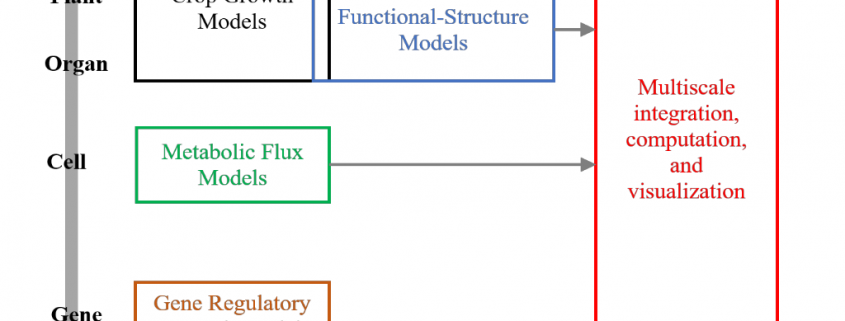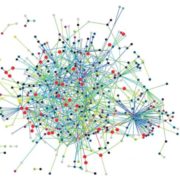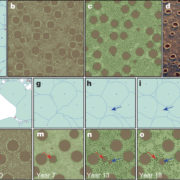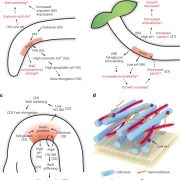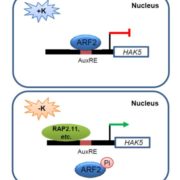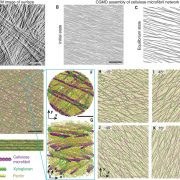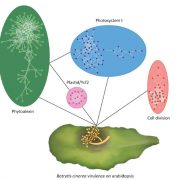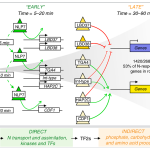Perspective: Multiscale computational models for crop improvement (Plant J)
Throughout the plant science community, the use of computational or in silico analyses which precede traditional studies are gaining traction to identify research opportunities. Multiscale computational models are those which assimilate data from all biological system levels from gene to ecosystem. Benes et al. advocate for the use of such multiscale models to advise crop improvement studies. The authors present examples in which single scale mathematical models have previously guided research such as to inform crop management strategies. However, by combining models of different biological scales, we can evaluate crop “ideotypes” and test “what if” scenarios to comprehend how crops will react in untried conditions. To that end, we need to develop methods to bridge independently designed models, which is a major aim of the Crops in silico consortium. This group has developed the yggdrasil framework which facilitates connections between models that operate at distinct biological scales and are written in different coding languages (in Norse mythology, Yggdrasil is an immense tree that connects many lands). Further efforts by the consortium will support researchers in visualizing model outputs to allow results to be intuitively interpreted. Consequently, multiscale models will steer research and technological advancements to better our understanding of crop responses to future climates, thus aiding global food security. (Summary by Caroline Dowling) Plant Journal 10.1111/tpj.14722
[altmetric doi=”10.1111/tpj.14722″ details=”right” float=”right”]


